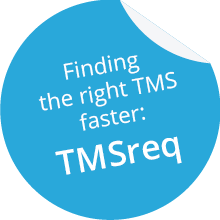Guideline for in-country reviews
A generalized version of our Review Guide. Use it as a basis for your individual guideline to optimize your review processes.
Find out more
Checking a translation can be a huge challenge for companies – when carried out by the national offices of a major international company, for example.
For this reason, expert feedback is sought on the terminology used, often from product managers or sales managers in the target markets. This is because the reviewing of translated or localized texts in the target language is often the only way for companies to create and maintain a consistent, high-quality corporate language. The feedback from this review process is also imperative for the ongoing qualitative fine-tuning of translations.
However, if this feedback is very extensive, or if it contradicts earlier opinions, processing it can have an immense secondary impact, leading to additional costs, delays, and dissatisfaction all round. This must therefore be avoided. The aim should be to make processes as efficient and cost-effective as possible.
To this end, we frequently develop customized review processes and guidelines for our customers. These help to improve the review processes in the target languages, involving internal experts in the process.
Guide to inclusive communication in German at Gemino
Language shapes our lives. Especially in a globalized world. As a language service provider, we can contribute to this every day. And we want to do this as conscientiously as possible. Both in external communication and internally. That is why this guide exists.
Anyone interested is welcome to use it as inspiration or as a building block for creating their own guidelines.
Success stories
ZEISS Microscopy: Over 60 % shorter turnaround time for marketing translations
Would you like to know how we were not only able to considerably reduce turnaround time, but also significantly improve the quality and consistency across documents for ZEISS Microscopy? Read more…
Wilo SE: Machine translation with data protection and added benefits
Would you like to know how we provided Wilo with a customized service for the secure use of machine translation, which complies with data protection regulations and offers additional benefits? Read more…
Specialist information
How to select a translation memory system
Precision and patience pay off when you’re looking for the right translation memory system (TMS) for your company. Read more…
Voiced by Darth Vader: Opportunities and limitations of speech synthesis
Speech synthesis has developed strongly in recent years and has become a serious alternative to traditional studio recordings. Read more…
When routine approval steps turn into valuable feedback
In-country reviews can be challenging to implement in translation processes: Are we talking about changes or corrections? What specifications apply? Who should be involved? And, above all, are they really necessary? Read more…
How to keep marketing translations strictly marketing
Global companies expect the translation of their marketing messages to be not only correct, but also culturally adapted and well formulated. Read more…
Dubbing, subtitling & co.: What to keep in mind for video localization
Here, we tell you what to keep in mind when developing and making a video, so that nothing stands in the way of successful localization. Read more…
Purchasing translations: preferably centrally
When translation services are not purchased centrally within a company, then the company incurs additional costs. Plus, quality and consistency are compromised. Read more…
Word, Excel & Co – finding the right file format for translation
What file formats are most suitable and which are least suitable for translation? Read more…
The Bill, Please: An Overview of Compensation Models for Translations
The range of billing possibilities for translations does not make it easy for purchasers to estimate translations costs. Read more…
Translation memory and terminological database – why we need both
There are two different systems for storing translations, the translation memory system and the terminological database. What is the actual difference? Read more…
“Hades” wasn’t going to work at all – why we should think about the target markets when coming up with product names
Due to a standardized procedure a useful decision-making tool enables our client to make a safe choice for or against a product name. Read more…

